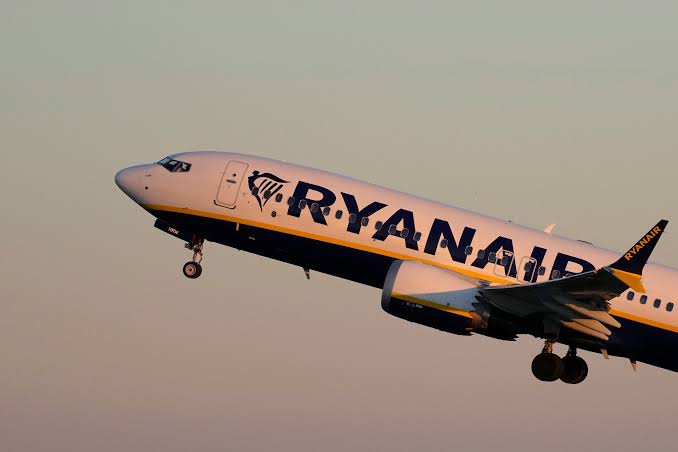Ryanair Grounds 100 Flights Amid Emergency Strike Chaos
In a dramatic turn of events that has left thousands of passengers stranded and travel plans in disarray, Ryanair, Europe’s largest budget airline, was forced to cancel around 100 flights on Friday following the sudden declaration of an emergency strike by its cabin crew and ground staff in several key European hubs.
The strike, which caught both the airline and travelers off guard, was announced late Thursday evening, with employee unions citing stalled labor negotiations, unfair working conditions, and unresolved disputes over pay and benefits as primary reasons. The result: a chaotic Friday morning for one of the continent’s most popular low-cost carriers.
What Triggered the Strike?
According to union representatives, the strike was a last resort after months of unsuccessful talks with Ryanair’s management. While the airline had previously claimed to be engaging in open dialogue with employee groups, workers said progress had stalled and promises remained unfulfilled.
A spokesperson for the European Cabin Crew Union (ECCU), which represents a large portion of Ryanair’s workforce in Germany, France, Spain, and Italy, said:
> “Ryanair employees have been patient for long enough. We’ve endured wage stagnation, overwork, and poor conditions while the airline posts record profits. Today’s action reflects the frustration and fatigue of thousands of workers who feel ignored.”
Key demands include standardized contracts across EU countries, better sick leave policies, fair scheduling, and an end to what workers describe as “exploitative” contracts that differ by location—often benefiting the airline more than the employees.
Ryanair’s Response
In an official statement released early Friday, Ryanair expressed regret over the disruptions and emphasized that they are doing everything possible to minimize inconvenience to passengers.
> “We apologize sincerely to all affected customers for today’s flight cancellations, which were caused by an unannounced and unjustified strike by some of our staff in multiple locations. We are working hard to rebook passengers on alternative flights or provide refunds as per EU regulations.”
The airline also condemned the nature of the strike, calling it “opportunistic” and “harmful to customers,” and hinted at possible legal action against striking staff and union organizers.
Despite efforts to downplay the scale of the disruption, industry analysts say that a cancellation of 100 flights in a single day is a significant blow, especially for a company that prides itself on punctuality and high aircraft utilization.
Passenger Fallout
Across major European airports—from Dublin to Berlin, Madrid to Rome—passengers awoke to chaos. Long lines formed at Ryanair check-in desks, and social media was flooded with images of confused and frustrated travelers waiting for information or attempting to rebook.
Elena Marquez, a passenger at Madrid Barajas Airport, said she received a text message just three hours before her flight to Milan, informing her that it had been canceled.
> “There were no staff to talk to, and the phone lines were overwhelmed. I was supposed to attend a family wedding this weekend—now I don’t even know if I’ll get there in time.”
Some passengers, particularly those on business trips or attending time-sensitive events, have had to seek last-minute alternatives with other airlines, often at significantly higher prices.
Economic and Industry Impact
The strike and subsequent flight cancellations come at a particularly sensitive time for the airline industry. Just as travel is beginning to stabilize post-pandemic and airlines are pushing for a summer surge in bookings, any disruption of this magnitude can carry significant financial consequences.
Industry analyst Patrick Lane of Global Travel Insights stated:
> “Ryanair operates on razor-thin margins and relies on high-frequency, quick-turnaround flights. A sudden cancellation of this scale not only results in immediate revenue loss but can also shake customer confidence going into the crucial summer season.”
Moreover, with union movements gaining momentum across various sectors in Europe—particularly in transportation—there is growing concern that this could be the beginning of wider unrest if Ryanair fails to resolve disputes quickly.
Government and Regulatory Reaction
Several European transport ministries have urged Ryanair and labor unions to return to the negotiation table immediately to prevent further chaos. The European Commission also reminded airlines of their obligations under EU Regulation 261/2004, which requires airlines to offer compensation and support to affected passengers in cases of flight cancellations.
Consumer rights advocacy groups are already calling on national aviation authorities to monitor Ryanair’s handling of the situation closely. The group FlyFair Europe released a statement saying:
> “While workers have the right to strike, airlines have a duty of care to their customers. We expect Ryanair to go beyond the minimum legal requirements to make this right for passengers who’ve been caught in the crossfire.”
What Comes Next?
At the moment, it’s unclear how long the strike will last or whether it will escalate. Union leaders have stated they are prepared to extend the strike into the weekend or even stage rolling walkouts if their demands are not met promptly.
Negotiations have reportedly been scheduled for early next week, but the outcome remains uncertain. In the meantime, Ryanair is urging passengers traveling in the coming days to check their flight status regularly and sign up for notifications.
The airline also promised to work overtime to rebook affected passengers or offer full refunds. However, given the volume of disrupted travel plans, customer service lines are expected to remain overwhelmed for at least another 48 hours.
A Tipping Point for Budget Airlines?
This incident raises broader questions about the sustainability of the ultra-low-cost model in modern aviation. While Ryanair has long been lauded for its low fares and operational efficiency, critics argue that such a model often comes at the expense of employee welfare and customer experience.
As competition intensifies and regulatory scrutiny increases, Ryanair—and other budget carriers—may have to rethink their labor strategies to avoid further disruptions and public backlash.
Final Thoughts
The emergency strike has brought to light deep-seated tensions within Ryanair’s workforce, and its ripple effects are being felt across Europe. As passengers scramble to salvage travel plans and unions prepare for further action, the airline finds itself at a crossroads.
Whether this marks a turning point for employee relations within Ryanair or simply another chapter in its turbulent history remains to be seen. One thing is certain: passengers, workers, and the travel industry as a whole will be watching closely.






